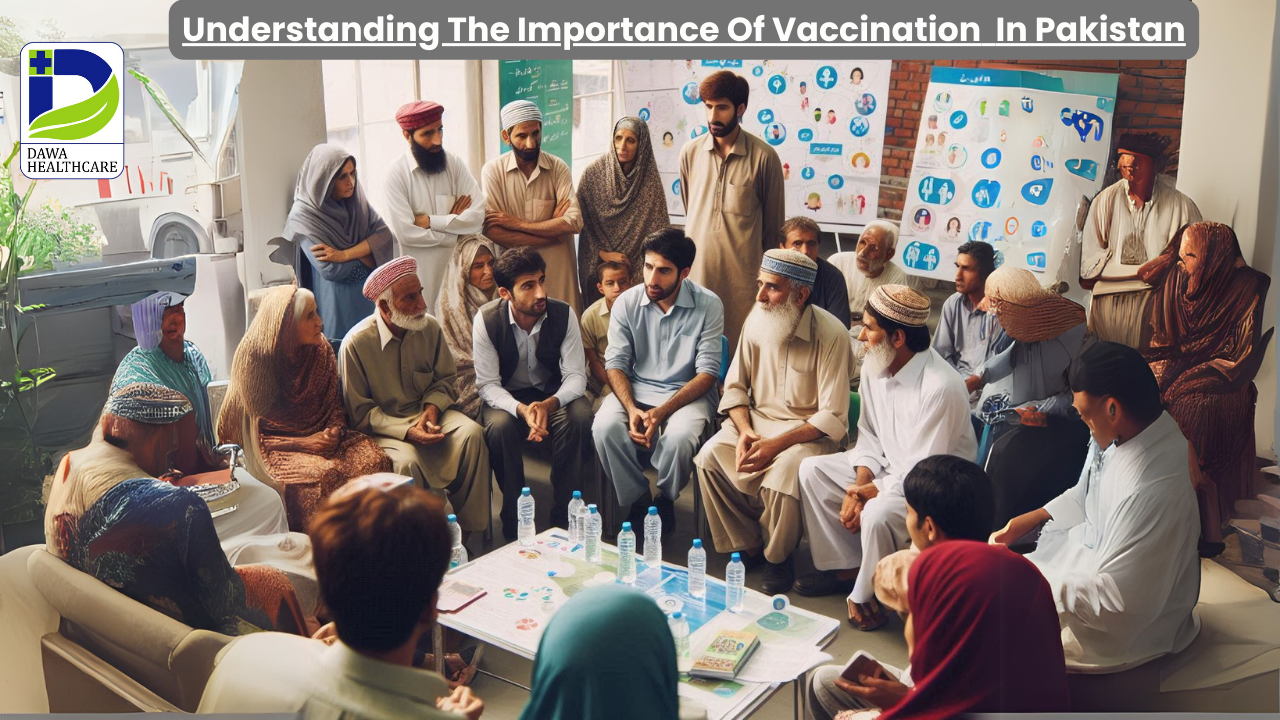
Understanding The Importance Of Vaccination In Pakistan: Myths And Facts
In Pakistan, vaccination programs have significantly reduced the prevalence of life-threatening diseases like polio and measles. Despite these achievements, myths about vaccines persist, which create hurdles for immunization efforts. We have compiled this blog to uncover the importance of vaccination, dispel common misconceptions, and highlight the undeniable health benefits of vaccines.
Importance Of Vaccines
Why are vaccines important? Vaccines are one of the most effective tools for combating infectious diseases. They work by stimulating the body’s immune system to recognize and fight pathogens without causing illness. This preventative approach not only protects but also helps create herd immunity, reducing disease transmission within communities.
In Pakistan, where diseases like polio, measles, and hepatitis remain a concern, vaccination and disease prevention are essential. These programs have already made significant strides, but more work is needed to address challenges such as vaccine hesitancy and misinformation.
Health Benefits Of Vaccines
The health benefits of vaccines are far-reaching, both for individuals and society as a whole:
● Disease Prevention: Vaccines protect against infectious diseases like polio, measles, and whooping cough, which reduces the burden on the healthcare system.
● Reduced Mortality Rates: Immunization has saved millions of lives globally, particularly among children under the age of five.
● Economic Impact: By preventing disease, vaccines reduce medical costs and increase productivity which then benefits families and communities.
● Herd Immunity: Vaccines protect those who cannot be immunized, such as newborns or individuals with weakened immune systems, by limiting disease spread
Common Myths About Vaccines
Despite overwhelming scientific evidence supporting vaccines, misconceptions continue to hinder their acceptance. Let’s tackle some of the most common myths about vaccines with factual information.
Myth 1: Vaccines Cause Infertility
This myth has gained traction in some communities, particularly concerning the polio vaccine. However, extensive research has shown no connection between vaccines and infertility. Vaccines undergo rigorous testing and are deemed safe for public use by global health authorities, including the World Health Organization (WHO).
Myth 2: Natural Immunity Is Better
While it’s true that natural immunity can occur after infection, the risks far outweigh the benefits. Diseases like measles and polio can lead to severe complications or death. Vaccines offer a safer way to develop immunity without experiencing the disease itself, making them a far better option.
Myth 3: Vaccines Contain Harmful Substances
Some believe that vaccines contain dangerous ingredients. The truth is that vaccine components like preservatives and adjuvants are present in tiny amounts and are thoroughly tested for safety. Regulatory authorities make sure that all ingredients meet stringent safety standards before vaccines are approved for use.
Myth 4: Vaccines Are Unnecessary Due To Low Disease Rates
The low prevalence of diseases such as polio and measles is a direct result of vaccination programs. Stopping these programs would likely lead to a resurgence of these diseases. Maintaining high vaccination rates is essential for continued disease prevention and protection of future generations.
Vaccination And Disease Prevention In Pakistan
Pakistan has made significant progress in its immunization efforts, particularly in eradicating polio from most regions. The Expanded Program on Immunization (EPI) provides free vaccines against 11 preventable diseases, including tuberculosis, hepatitis B, and tetanus. However, challenges such as vaccine hesitancy and lack of access in remote areas still exist.
Addressing Vaccine Hesitancy
One of the major barriers to vaccination in Pakistan is hesitancy fueled by misinformation and cultural beliefs. Mistrust in healthcare systems, fear of side effects, and reliance on myths have led some parents to refuse vaccines for their children. Tackling these concerns requires:
● Community Engagement: Working with local leaders to educate communities about the importance of vaccination.
● Awareness Campaigns: Dispelling myths and providing accurate information through media campaigns.
● Accessibility: Making vaccines available and easily accessible, even in remote areas.
Why Vaccines Are Important For Future Generations
Vaccination doesn’t just protect individuals; it safeguards future generations by reducing the spread of infectious diseases. Pakistan’s success in nearly eradicating polio is a testament to the power of immunization. With continued efforts, we can make sure that children grow up in a healthier environment, free from preventable diseases.
Vaccines also play a crucial role in global health security. In today’s interconnected world, a disease outbreak in one region can quickly spread across borders. Maintaining high vaccination rates helps prevent global epidemics and strengthens Pakistan’s role in international health efforts.
Summing It Up
The importance of vaccination cannot be overstated. Let’s work together to spread awareness, dispel myths, and champion the life-saving benefits of vaccines. After all, the fight against preventable diseases is one we can only win together. Dawa Healthcare proudly stands tall as the top pharmacy in Karachi with a facility of authentic and safe vaccinations for all. Get in touch with us today for the information about vaccinations and get them administered from any of our branches all over Karachi.

